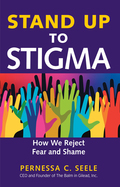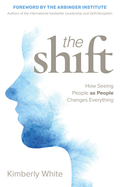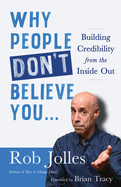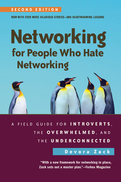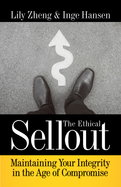Search Results: "Social Venture Networks/books/marketing-that-matters.htm"
Results 205-210 of 345
Stand up to Stigma
2017
No More Hate! All Are Welcome!
“Stigma” is a simple two-syllable word, yet it carries the weight of negative and often unfair beliefs that we hold about those who are different from us. Stigmas lock people into stereotyped boxes and deny us all the right to be our authentic and whole selves. Dr. Pernessa Seele, a longtime public health activist who started one of the first AIDS education programs in the 1980s, has crafted a proven method to address stigma. This powerful book confronts stereotype development, shows how to undo the processes and effects of stigma, and explains how we can radically change cultural thinking on the individual, interpersonal, and societal levels to put an end to stigmatization once and for all.
“Stigma” is a simple two-syllable word, yet it carries the weight of negative and often unfair beliefs that we hold about those who are different from us. Stigmas lock people into stereotyped boxes and deny us all the right to be our authentic and whole selves. Dr. Pernessa Seele, a longtime public health activist who started one of the first AIDS education programs in the 1980s, has crafted a proven method to address stigma. This powerful book confronts stereotype development, shows how to undo the processes and effects of stigma, and explains how we can radically change cultural thinking on the individual, interpersonal, and societal levels to put an end to stigmatization once and for all.
The Shift
2018
A Simple yet Profound Shift
Seeing people as people is an idea so simple you'll swear you've heard it a million times but so profound you'll never stop learning from it. Kimberly White discovered it in a chain of nursing homes whose leaders, nurses, and housekeepers saw their patients, not as tasks to be ticked off a to-do list, but as valuable human beings.
White helps you to this transformative shift with warm encouragement, insightful guidance, and powerfully moving, true accounts of extraordinary human goodness.
Seeing people as people is an idea so simple you'll swear you've heard it a million times but so profound you'll never stop learning from it. Kimberly White discovered it in a chain of nursing homes whose leaders, nurses, and housekeepers saw their patients, not as tasks to be ticked off a to-do list, but as valuable human beings.
White helps you to this transformative shift with warm encouragement, insightful guidance, and powerfully moving, true accounts of extraordinary human goodness.
“Technology is a great servant but a terrible master. This is the most important book ever written about one of the most significant aspects of our lives—the consequences of our addiction to online technology and how we can liberate ourselves and our children from it.”
—Dean Ornish, M.D. Founder & President, Preventive Medicine Research Institute, Clinical Professor of Medicine, UCSF, Author, The Spectrum
Technology: your master, or your friend? Do you feel ruled by your smartphone and enslaved by your e-mail or social-network activities? Digital technology is making us miserable, say bestselling authors and former tech executives Vivek Wadhwa and Alex Salkever. We've become a tribe of tech addicts—and it's not entirely our fault.
Taking advantage of vulnerabilities in human brain function, tech companies entice us to overdose on technology interaction. This damages our lives, work, families, and friendships. Swipe-driven dating apps train us to evaluate people like products, diminishing our relationships. At work, we e-mail on average 77 times a day, ruining our concentration. At home, light from our screens is contributing to epidemic sleep deprivation.
But we can reclaim our lives without dismissing technology. The authors explain how to avoid getting hooked on tech and how to define and control the roles that tech is playing and could play in our lives. And they provide a guide to technological and personal tools for regaining control. This readable book turns personal observation into a handy action guide to adapting to our new reality of omnipresent technology.
—Dean Ornish, M.D. Founder & President, Preventive Medicine Research Institute, Clinical Professor of Medicine, UCSF, Author, The Spectrum
Technology: your master, or your friend? Do you feel ruled by your smartphone and enslaved by your e-mail or social-network activities? Digital technology is making us miserable, say bestselling authors and former tech executives Vivek Wadhwa and Alex Salkever. We've become a tribe of tech addicts—and it's not entirely our fault.
Taking advantage of vulnerabilities in human brain function, tech companies entice us to overdose on technology interaction. This damages our lives, work, families, and friendships. Swipe-driven dating apps train us to evaluate people like products, diminishing our relationships. At work, we e-mail on average 77 times a day, ruining our concentration. At home, light from our screens is contributing to epidemic sleep deprivation.
But we can reclaim our lives without dismissing technology. The authors explain how to avoid getting hooked on tech and how to define and control the roles that tech is playing and could play in our lives. And they provide a guide to technological and personal tools for regaining control. This readable book turns personal observation into a handy action guide to adapting to our new reality of omnipresent technology.
For some, projecting confidence and credibility is second nature. For others, it seems like a foreign language they'll never learn – until now. Rob Jolles delivers down-to-earth solutions for anyone looking to enhance the most basic need of all; to be believed. He leverages his over 30 years of experience to equip readers with empowering and practical tools for achieving business and social success.
Jolles argues that credibility is as much about attitude as it is about aptitude. So-called “soft skills” like pitch, pace, and tone of voice, are actually some of the most crucial factors in determining how people perceive us. As he puts it, “it's not the words, it's the tune” that really makes us memorable and credible.
This book is about finding the necessary magic to help others believe you. It requires an unshakable belief in yourself, so Jolles starts there. With that as a solid foundation, you can move on to the specific tactics and practices that will make you credible and convincing. But these can be tough to practice in the face of the inevitable setbacks we all face, so he also offers advice on maintaining courage and confidence when doubt naturally creeps in. And he concludes with a discussion of sustaining your newfound credibility for the long haul.
There isn't a soul on earth who hasn't questioned themselves at some point. And most of us are just one or two brutal rejections away from questioning all that we are. Why People Don't Believe You helps readers cultivate a robust mental framework and a set of what Jolles calls “performance skills” to tackle these doubts. You are good enough –and after reading this stirring book, you'll be ready to make the world believe that as well.
Jolles argues that credibility is as much about attitude as it is about aptitude. So-called “soft skills” like pitch, pace, and tone of voice, are actually some of the most crucial factors in determining how people perceive us. As he puts it, “it's not the words, it's the tune” that really makes us memorable and credible.
This book is about finding the necessary magic to help others believe you. It requires an unshakable belief in yourself, so Jolles starts there. With that as a solid foundation, you can move on to the specific tactics and practices that will make you credible and convincing. But these can be tough to practice in the face of the inevitable setbacks we all face, so he also offers advice on maintaining courage and confidence when doubt naturally creeps in. And he concludes with a discussion of sustaining your newfound credibility for the long haul.
There isn't a soul on earth who hasn't questioned themselves at some point. And most of us are just one or two brutal rejections away from questioning all that we are. Why People Don't Believe You helps readers cultivate a robust mental framework and a set of what Jolles calls “performance skills” to tackle these doubts. You are good enough –and after reading this stirring book, you'll be ready to make the world believe that as well.
Would you rather get a root canal than face a group of strangers? Does the phrase “working a room” make you want to retreat to yours? Devora Zack, an avowed introvert and successful consultant who gives presentations to thousands of people at dozens of events annually, feels your pain. She found that other networking books assume that to succeed, you have to act like an extrovert. Not at all. There is another way.
Zack politely examines and then smashes to tiny fragments the “dusty old rules” of standard networking advice. She shows how the very traits that make many people hate networking can be harnessed to forge an approach more effective and user-friendly than traditional techniques. This edition adds new material on applying networking principles in personal situations, handling interview questions, following up—what do you do with all those business cards?—and more.
Networking enables you to accomplish the goals that are most important to you. But you can't adopt a style that goes against who you are—and you don't have to. As Zack writes, “You do not succeed by denying your natural temperament; you succeed by working with your strengths.”
Zack politely examines and then smashes to tiny fragments the “dusty old rules” of standard networking advice. She shows how the very traits that make many people hate networking can be harnessed to forge an approach more effective and user-friendly than traditional techniques. This edition adds new material on applying networking principles in personal situations, handling interview questions, following up—what do you do with all those business cards?—and more.
Networking enables you to accomplish the goals that are most important to you. But you can't adopt a style that goes against who you are—and you don't have to. As Zack writes, “You do not succeed by denying your natural temperament; you succeed by working with your strengths.”
The Ethical Sellout
2019
In the age of purity politics and public shaming, people are fearful of betraying their values and selling out. Authors Lily Zheng and Inge Hansen make the bold claim that everyone sells out-and that the challenge lies in doing it ethically.
We all fear selling out. Yet we all face situations that test our ideals and values with no clear right answer. In a world where compromise is an essential aspect of life, authors Lily Zheng and Inge Hansen make the bold claim that everyone sells out-and that the real challenge lies in doing so ethically.
Zheng and Hansen share stories from a diversity of people who have found their own answers to this dilemma and offer new ways to think about marginalization, privilege, and self-interest. From these stories, they pull out teachable skills for taking the step from selling out to selling out ethically. The Ethical Sellout is for all those committed to maintaining their integrity in a messy world.
We all fear selling out. Yet we all face situations that test our ideals and values with no clear right answer. In a world where compromise is an essential aspect of life, authors Lily Zheng and Inge Hansen make the bold claim that everyone sells out-and that the real challenge lies in doing so ethically.
Zheng and Hansen share stories from a diversity of people who have found their own answers to this dilemma and offer new ways to think about marginalization, privilege, and self-interest. From these stories, they pull out teachable skills for taking the step from selling out to selling out ethically. The Ethical Sellout is for all those committed to maintaining their integrity in a messy world.


